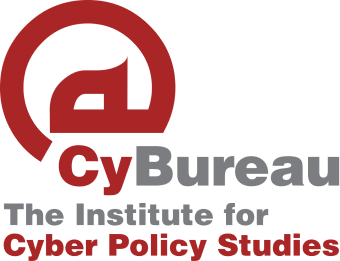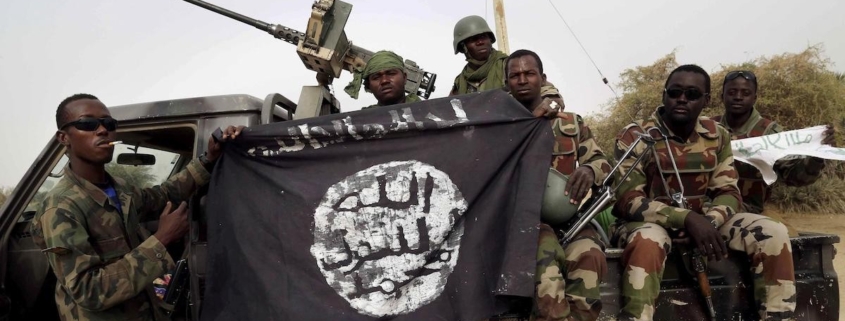Fighting Traditional Terrorism and Cyberterrorism in Nigeria is Beyond WarPlanes, Tanks, and Big-screen Monitors
“If you think technology can solve your security problems, then you don’t understand the problems, and you don’t understand the technology.” Bruce Schneier 1996 in” Applied Cryptography 2nd edition.”
Despite the efforts of the successive and current governments to stop terrorism, it is still one of the significant ways to die in Nigeria. Nigeria Security Tracker NST categorized causes of terror-related deaths as follows; Boko Haram, Boko Haram plus State actors, Sectarian and Other Armed Forces. According to separate data presented by Council on Foreign Relations, UNDIP, UNHCR, UNHCR reported nearly 350,000 killed in Northeast Nigeria, 3 million displaced in the Lake Chad Basin, and more than 310,000 are refugees since 2009 respectively. Having looked at the sustained attacks since 2002, one common denominator that cannot be overemphasized is that it is beyond technology. Terror financing, in which cyberspace is one of the media, is one of the reasons the government has not been able to win the fight against terrorism.
Nigeria insurgency and financing
As reported by USNews, six Nigerians were arrested in Dubai and sentenced for funding Boko Haram. The sources said the Federal Court of Appeals in the United Arab Emirates sited in Abu Dhabi sentenced the six Nigerians for transferring $782,000 from Dubai to Boko Haram in Nigeria. Two of the persons were sentenced to life imprisonment while the other four are to serve ten years, all for violating UAE’s anti-terrorism laws. It said two Boko Haram agents, reportedly government officials, received the fund in Nigeria on behalf of the terrorist group.
Uche Igwe, a senior political economy analyst and a visiting fellow at the LSE Firoz Lalji Centre for Africa cited the hypocrisy of officials as the reason for the sustained terrorist activities. He decried why 400 businessmen who were allegedly arrested haven’t been prosecuted diligently. Sources claimed 19 BDCs are owned by persons directly linked to Boko Haram, citing that about $600M are found to have been used to fund terrorism. In response to the alleged arrest, the Senator representing Borno South, Ali Ndume, questioned why the government had not revealed the identities of the financiers. However, the issue has been stalled like most of Nigeria’s anti-corruption fights.
Also, while fielding questions from the State House Reporters in Abuja, Malami, who doubles as the attorney general of the federation and Minister of Justice, said, “the investigation is ongoing but has reached an advanced stage.’
According to him, “I’m happy to report that the investigation has been ongoing for a long, and it has reached an advanced stage. Arriving from the investigation, there is undoubtedly reasonable grounds for suspicion that many Nigerians, high-profile, institutional, and otherwise, are involved in terrorism financing, and they are being profiled for prosecution.
“In essence, it is indeed true that the government is prosecuting, and it’s indeed initiating processes of prosecuting those high-profile individuals that are found to be financing terrorism. It is indeed true,” he said.
Nigeria Traditional and Cyberterrorism
You would ask or wonder about the correlations between traditional terrorism and cyberterrorism in Nigeria. To clear the doubts, let’s have a background of the subject- traditional terrorism and cyberterrorism.
According to Teixeira A, 2013, terrorism, in general, is not a regular crime but is characterized as a crime with high intensities. It usually constitutes higher intensity and is more dangerous. Traditional terrorism is meant to destroy physical infrastructure and humans. On the other hand, cyberterrorism is also an intense kind of crime. However, it differs by location and medium of perpetration. Unlike traditional terrorism, it is carried out through online activities and the internet.
Traditional terrorism and cyberterrorism are correlated in the sense that terrorists nowadays use online or the internet to communicate and perpetuate their acts and the source for funding.
Similar to cyberterrorism on the global scale, Osho Olawumni et al. said through a report that cyberspace could fast become the biggest promoter of terrorism in Nigeria. They disclosed that cyberspace security is the trigger point in developing effective anti-and counter-terrorism strategies in Nigeria.
Osho O et al. cited two instances that could explain the relationship between traditional terrorism and cyberterrorism. Accordingly, in the October 1st, 2010 bombing in Abuja, MEND used the internet to communicate its ploy to security agents. Shortly after, in a raid, the Joint Task Force, a collaboration of different security agents mandated to curb insurgency, recorded 54 assorted SIMs during a raid in the homes of some of the Boko Haram commanders. The SIM cards were said to be used for communication with the intent of hiding identities.
Between July 2011 and 2013, a linear relationship between mobile subscription and the number of the bombing was 0.71. While it is still dicey if there is a relationship between the two variables, mobile services were turned off in May 2013 in two states with the highest onslaught of the terrorist group. During the period, the services were shut, there is no record of bombing, but a short time after it was turned on, there was an attack.
Although there could be factors and constraints, it is proven that these terrorists use the internet and mobile services to communicate and share information among themselves.
Fighting Terrorism; The frameworks.
As cited earlier, Bruce Schneier, in Applied Cryptography’s second edition, we need more than technology to fight insecurity. If we don’t need only technology to solve security problems facing Nigeria, what do we need? We needed the tech as much as we did other security frameworks such as legislation and semantics. Most importantly, we need guts and the willpower enshrined in the legislation and technology.
The technology framework of the security architecture is those machines, warplanes, big-screen computers, and the associated techniques that help us barricade our borders from invaders and allow peaceful co-existence. The legislation is trust and governance frameworks of the security architecture. It simply means the laws, the regulations, and the political correctness of fighting terror. As shown in my previous article, Nigeria has a Cybercrimes Act passed in 2015, yet sources suggest compliance and systematics could be its bane.
On the other hand, semantics refers to the socio-cultural, religious, and political correctness and other biases that concern the country’s security. The government needs to listen to these concerns and address them and build a framework around them.
In the Nigeria terror context, Wikipedia, for instance, detailed the Nigeria military equipment, showing there are tons of billions worth of machines to secure the country, yet, there are still discrepancies.
Mr Malami, in a previous article, disclosed his committee is investigating the high-profiled Nigerians culpable in funding terrorism in Nigeria. On other news, Premium Times narrated how Borno state governor Prof. Babagana Zulum accused soldiers of extortion. The big question is now what will curb terrorism- cyber and traditional terrorism in Nigeria?
Will power and Guts are Nigeria’s currency to stopping terrorism.
The country has continued budgeting for the fight against terrorism, yet, the end is not yet in sight. Therefore, I’m suggesting that we require beyond Money and technology to win. To bolster my points, let’s look at some recent revelations.
After bandits or kidnappers stormed the Nigeria defence academy, one of Nigeria’s most supposedly secure places, Channels TV interviewed a high-ranking retired navy commodore, Kunle Olawunmi. He was so direct and narrated what is touted known as Kunle Olawunmi’s theory of collusion insiders.
Kunle, who spent over two decades as a military intelligence operative, when asked about the NDA attack, narrated how the gate of the academy is usually thrown open for religious purposes on Fridays. He went on to say:
“I can’t come on air and start mentioning names of people that are presently in government that the boys who were arrested (in 2017) mentioned… Some of them are governors now. Some of them are in the Senate. Some of them are in Aso Rock.”
If all this as narrated is factual, we need beyond warplanes, tanks, combatants, Money, and computers to fight Nigeria terrorism. We need the guts and willpower to save our nation from turning to the next Afghanistan.

